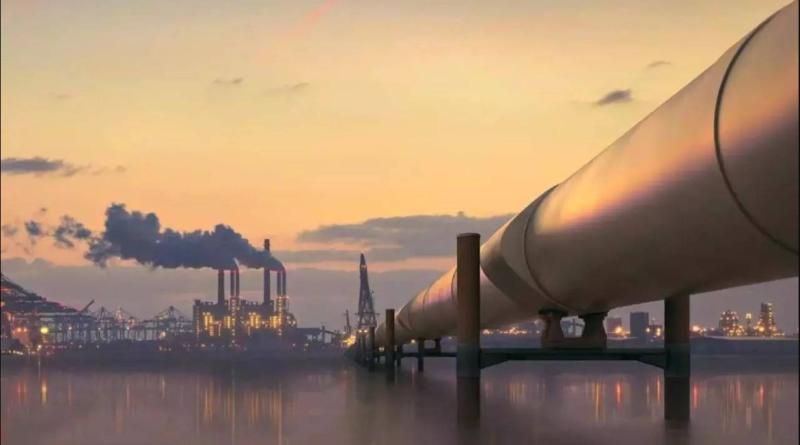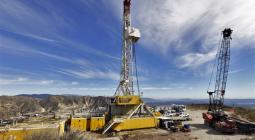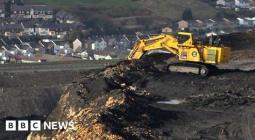No investment in new coal, oil, natural gas should be made: IEA

No investment in new coal, oil, natural gas should be made: IEA
Bathinda: As per updated report to its Net Zero Roadmap published by International Energy Agency on Tuesday, the path to 1.5 ̊C has narrowed, but clean energy growth is keeping it open. As per the roadmap, there is no need for investment in new coal, oil and natural gas.
Global carbon dioxide (CO2) emissions from the energy sector reached a new record high of 37 billion tonnes (Gt) in 2022, 1% above their pre-pandemic level, but are set to peak this decade.
The speed of the roll-out of key clean energy technologies means that the IEA now projects that demand for coal, oil and natural gas will all peak this decade even without any new climate policies.
Positive developments over the past two years include solar PV installations and electric car sales tracking in line with the milestones set out for them in the IEA’s 2021 Net Zero by 2050 report.
Growth in clean energy is the main factor behind adecline of fossil fuel demand of over 25% this decade in the NZE Scenario.
Tripling global installed renewables capacity to 11 000 gigawatts by 2030 provides the largest emissions reductions to 2030 in the NZE Scenario
Doubling the annual rate of energy intensity improvement by 2030 in the NZE Scenario saves the energy equivalent of all oil consumption in road transport today
Electric vehicles and heat pumps drive electrification across the energy system, providing nearly one-fifth of the emissions reductions to 2030 in the NZE Scenario.
The world is set to invest a record USD 1.8 trillion in clean energy in 2023: this needs to climb to around USD 4.5 trillion a year by the early 2030s to be in line with the IEA’s pathway.
By 2030 in the NZE Scenario, total household energy expenditure in emerging market and developing economies decreases by 12% from today’s level, and even more in advanced economies.
By 2035, emissions need to decline by 80% in advanced economies and 60% in emerging market and developing economies compared to the 2022 level.
Almost all countries need to bring forward their targeted net zero dates.
Dave Jones, Global Programme Lead at Ember said: “Tripling renewable electricity is the single biggest action required this decade to secure a rapid shift away from fossil fuels. Electricity is the new oil, as clean electrification takes centre stage.
Kelly Trout, Research Director, Oil Change International said: “The 2023 Net Zero Energy scenario reaffirms a stark truth: To limit global temperature rise as agreed upon internationally, there’s no room for new oil, gas, or coal fields.
The time for a swift, equitable, and fully funded phase-out of fossil fuels is now. As countries prepare to make serious climate commitments at COP28, they must take into account the unequivocal evidence that the shift away from fossil fuels must happen, and it must happen fast.”
Ramnath Iyer, Lead – Climate & Renewable Energy Finance, IEEFA said: “As highlighted in the IEA report, renewable energy, particularly solar and wind power, is well-understood, widely accessible, and can be deployed quickly.
Therefore, it is crucial for countries, especially those in emerging Asia, to enhance their ambitions for integrating renewables into their electricity systems. It is worth noting that the availability of solar photovoltaic (PV) equipment i.e. modules is expected to be more than sufficient to meet the projected demand for 2030.
Tessa Khan, Executive Director at Uplift UK said: “This is yet more confirmation from the world’s energy experts that we can’t have new oil and gas projects if we’re going to stay within a safe climate and that massively scaling up renewables is key to achieving that.
A spokesperson for the UN-convened Net-Zero Asset Owner Alliance said:“The collective lack of progress on reducing emissions by 2030 is clearly highlighted in the updated IEA scenarios.
The message is clear: we need deep emissions reductions in the near term; and Alliance members are committed to implementing these in their individual capacities as indicated in the annual Target Setting Protocol (TSP).”
Tzeporah Berman, Chair of the Fossil Fuel Non-Proliferation Treaty Initiative said: “How many more reports do we need before our governments actually start listening and stop allowing fossil fuel expansion? Once again the science is clear: allowing new oil, gas and coal projects at this moment in history is like throwing gas instead of water on a planet on fire.
Today’s IEA report reinforced what half a million people were calling for when they marched in the streets last week across the globe, that our leaders need to stand up to the fossil fuel industry and focus on building a cleaner, safer world with electrification and renewable energy.
Lisa Fischer, Programme Lead at E3G said: “This report reconfirms the end of the “gas as a transition fuel” narrative. Investors that care about climate-alignment should no longer fall for this.
In this new version of IEA’s climate-aligned economic development pathway, gas demand must peak this year and decline by ca. one-fifth (18%) by 2030 and by ca. four-fifths (78%) by 2050. Compared to the last report it also sees an even smaller role for gas, down by 10% and 45% for 2030 and 2050 respectively.”
Mike Coffin, Head of Oil, Gas & Mining at Carbon Tracker Initiative said: “The latest iteration of the NZE confirms that following a low overshoot pathway to 1.5 is still possible, with the key lever to achieve this being the continued acceleration in the deployment of renewable energy and enabling technologies, particularly for road transportation.
The imperative to act to achieve this energy transition is starkly framed by Summer 2023 being the hottest on record.







